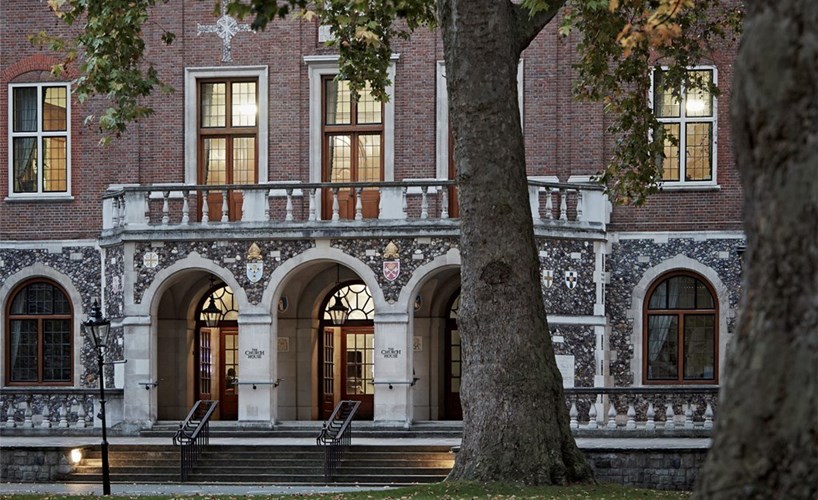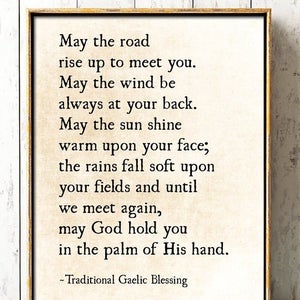
by Mark Bennet
There is a psychological phenomenon which occurs when a person is under extreme stress – a survival strategy called “splitting” – by which the bad bits of life are separated from the self so they don’t have to be experienced or dealt with. The world also tends to be seen in black and white, without nuance or complexity (I simplify grossly). Thinking about the Church of England as an organisation under stress, there seem to be so many examples of distancing from the bad bits (I will suggest some below), that the organisational defences seem to be set at a high level. One aspect of splitting is that it can occur unconsciously – and I want to suggest that the Church of England has not been wholly conscious of its institutional behaviour. Such situations involving God’s people occur in the Bible, of course, and it is the prophets who both diagnose the true situation and get badly treated for their pains – the black-and white evaluation and distancing strategies apply with some force. In this piece, I am looking at a range of issues through a particular lens, conscious that each example has a great deal more complexity than I am able to discuss. I am also aware that I am skating in general terms over issues which have profound personal consequences for some people.
My first observation of distancing was as a member of the WATCH national committee – so often women were talked of in public as if they were in a different category from other Christians, particularly the so-called “militant women”. I was proud to be a rather modestly militant man, conscious that my existence challenged the categories which dominated the narrative of the debate.
Another place where stress has been great has been in the handling of human sexuality. Here, I look at the collective behaviour of the bishops, who have affirmed what is called “traditional teaching” and yet enacted practices contrary to this – in ordaining gay (and later lesbian clergy) over at least the whole of my adult lifetime. And it is worth noting too that in ordaining lesbian and gay clergy, bishops have made implicit promises to those clergy, which they have often been unable to keep. Our Bishops collectively have neither moved to change their collective practice in line with their teaching, nor taken steps to defend their practice and change their teaching. When we look at the means used to engage with the issues, we find that the conversations have been outsourced to people and groups who have no agency to change the practice, and that debates which might have influenced the teaching have been deferred or controlled.
Particularly egregious has been the treatment of the victims and survivors of the various abuse scandals in the church – here we see black and white evaluation and distancing writ large. Those who have been abused are treated as an unwelcome distraction from core business. Examine, for example, how much resource has been found for the recruitment of safeguarding teams and the roll-out of training on an industrial scale – expensive and complex tasks requiring will and determination to carry through. Compare this with the task of compensating victims and survivors and their families – also a complex and expensive task, where the progress has been distinctly limited.
Then there is the commissioning of “lessons learned” reviews. In liturgy, I often suggest to my colleagues that we don’t just “say” or “read” our liturgical texts – if our liturgy means anything, we are saying or reading the texts for a reason, whether it be praise or confession or prayer or thanksgiving, and we ought to be using active words which signal personal engagement in the purpose of the text. (“Let us confess … “, rather than “let us say … “, for example). When Church bodies commission a lessons learned review, they can very easily subcontract both the review and the learning to the author. In the announcement of a review, there is often no language which signals personal commitment or engagement. The same is true, of course of the typical legal/PR “non apology” texts which have become too prevalent in recent times. A review, once written, can be put on the shelf with all the other reviews – just like the reports on minority ethnic concerns, whose recommendations, even when accepted, were never followed through. It might not be much, but changing the name of the reports to “Lessons to be learned” reviews, and saying “we are committed to learning the lessons” rather than “we have commissioned a report” would at least signal a greater intention. One reviewer, Ian Elliott, has tried to insist that the lessons are learned, and has experienced the same kind of distancing as others (and as the prophets before him).
The same distancing is seen with abusers too – the tone can change and they can be treated as if they were “never one of us”. The treatment of John Smyth and Jonathan Fletcher has this aspect, both within their close community, and also in the wider church, which so easily treats them as a mainly irrelevant part of a marginal group. The adulation given to Peter Ball before his fall, or Chris Brain, is an example of the “white” side of the black/white thinking of an organisation under stress – criticism is unwelcome, discounted, not allowed. “Success” is too necessary for survival for “failure” even to be contemplated.
And this black/white behaviour of the organisation is also seen around the operation of the Clergy Discipline Measure (CDM) – the use of suspension and secrecy has often led those facing investigation under the CDM to feel as if they have been deemed outsiders overnight – and of course, this is the behaviour we might expect from an organisation under the kind of existential threat which seems to be hanging over the Church of England. The feeling of threat, of course, is not new. When I was made Deacon, twenty years ago now, in Ripon Cathedral, the preacher predicted the demise of the CofE within five years and certainly within ten. I am not, in this piece, interested in the particular facts of individual cases, but more in what the collective experience might tell us about the organisation. The sense of threat seems to be driving adaptive behaviours which are contrary to our gospel narrative. The fiction, for example, that suspension is a neutral act, does not bear examination in relation to the lived experience of those who have been suspended, and conveniently ignores the fact that suspension is a public act in the lives of those exercising a public ministry. This fiction distances the decision-makers from the consequence of their decisions.
A very recent example of this kind of behaviour goes under the name “Myriad” – church without the difficult bits – bits like dealing with historic abuse, and allocating resource to victims. Not dealing with “limiting factors” and “passengers”. Without expensive training in the lessons learned in all those reviews. Not wondering how, if success looks so much like Peter Ball or Jonathan Fletcher of Chris Brain, we might avoid the catastrophic failures of those apparent successes – those lessons really do need to be learned. Don’t get me wrong, mission is important to me, and lay led groups and clergy led initiatives are part of our DNA in the parish where I serve (and variously evident in our collective life). But we take our responsibilities as part of a wider church seriously, and often feel them weighing heavily on us – that doesn’t change if we outsource the new initiatives: someone has to discharge the collective responsibility.
The new tagline for the Church of England seems to be “Simpler, humbler, bolder”. There is a danger in that word “Simpler”: given the scope of the challenge we face, it could be an invitation to sideline the complexities – and invitation to further or more aggressive distancing. I hope it refers rather to straightening out the bewildering complexities which contribute to the distancing/splitting behaviours we see so much of – complexities which so very often keep such people as victims, complainants and those complained of at arms length. These behaviours are adopted because they are easier, and apparently more effective than the alternative, which is evidently difficult and expensive and for which there is limited resource. The Jesus I read about in the Bible touched lepers and socialised with sinners in spite of the ritual impurity, stigma and criticism he faced.
“Church without the difficult bits” is an easy prospectus in a complex and challenging world – but that is not what we have been promised. The cross is not a symbol we can split off and ignore: Jesus puts it as a key waymark on the journey to redemption and resurrection, and invites us to live a faith in which the difficult bits are fully integrated. The way we are invited to travel is not straight and wide, but narrow and difficult. We are not invited to split off, ignore and deny the difficult bits, but to confess them and seek forgiveness. We have, and we enact, powerful symbolic language, which presupposes the work of the Holy Spirit, and which we could be using to resist the tendencies I have illustrated. Part of our problem is that, along with other kinds of splitting, it is so easy to separate these institutional and organisational issues from the theological, liturgical, spiritual and symbolic resources which would enable us to address them so much better. As St Paul might have written – and now I will show you a more excellent way …
Mark Bennet is Team Rector of Thatcham in the Diocese of Oxford








